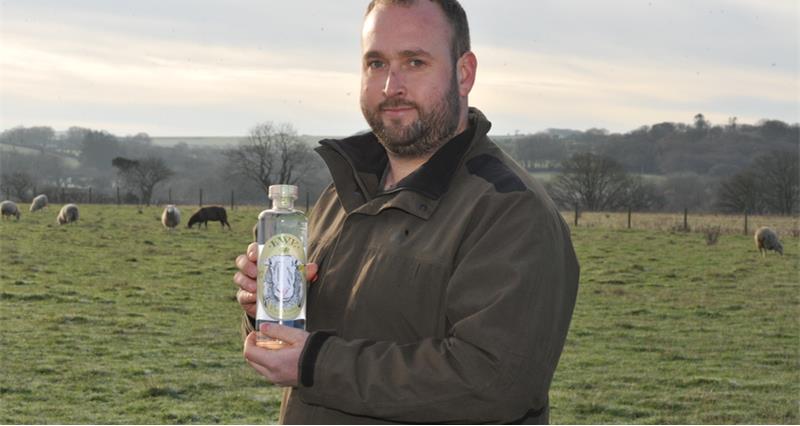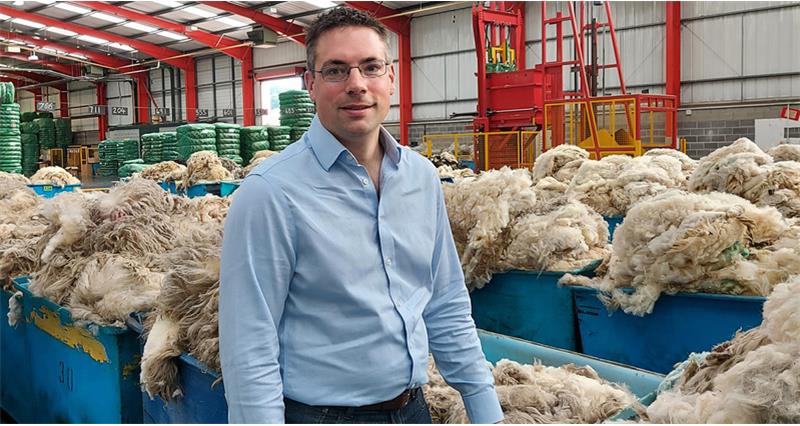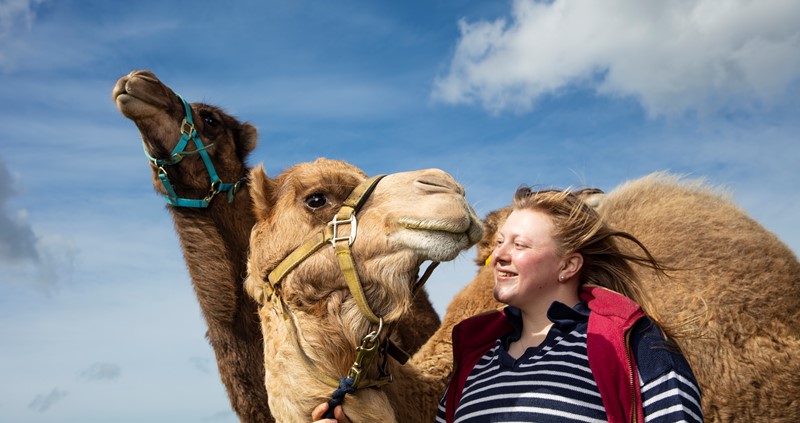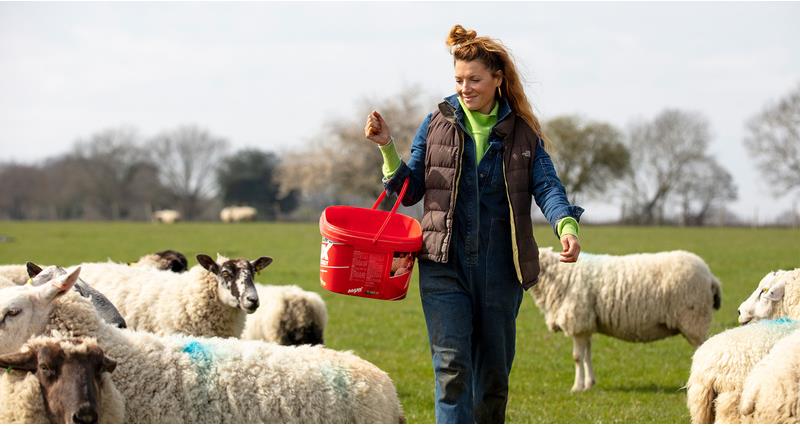Bryn Perry had no experience of milking dairy sheep before he established his own flock in Pembrokeshire, but no learning curve is too steep when fuelled by ambition. In less than two years, Bryn has doubled ewe numbers, is processing his own milk, and is on a mission to grow producer numbers in Wales.
As a first-generation farmer, it was a county council tenancy that provided his route into the sector. He had a degree in business management and experience of working in different industries and roles, but he saw his future in agriculture, and ultimately to have his own farming enterprise.
Achieving ambitions
The first of those ambitions was achieved when he secured a job as a herdsman on a dairy farm in Pembrokeshire. Bryn had found his calling – he quickly realised that he loved working with livestock, and everything involved in producing milk.
“The family I worked for taught me a huge amount, I gained invaluable experience of dairying and managing livestock. Their support and encouragement really inspired me.”
Shifting focus to dairy sheep
As he looked to the future, finance was a limiting factor to establishing his own herd because of the capital-intensive requirements of dairying, but by shifting his focus to a different species – dairy sheep – the prospect became a realistic one. “The infrastructure requirement wasn’t huge and it only needed a small area of land,” he explained.
“I could see how I could make dairying with sheep work and how to make money from it by adding value to the milk.”
“The family I worked for taught me a huge amount, I gained invaluable experience of dairying and managing livestock. Their support and encouragement really inspired me.”
Bryn Perry
Council farm tenancy
Armed with confidence and knowledge gained as a member of the NFU Cymru Next Generation Group and a Farming Connect ‘business bootcamp’ and its Agri Academy, he set about making his dream a reality by applying for the tenancy of a Pembrokeshire County Council farm at Welsh Hook, near Haverfordwest.
“It was only 35 acres but was perfect for what I needed to get my foot on the ladder,” said Bryn. He moved to Wernllwyd with his partner Becca Morris in early 2021; she was his initial link to Pembrokeshire, as she had grown up in Moylegrove where her family still lives.
Investment brings rewards
The couple got to work, investing £60,000 in a 12-point rapid exit parlour and other infrastructure, and 67 East Friesian ewes and 50 lambs from a dispersal sale in High Wycombe. Fast forward two years and the flock now numbers 120 ewes, the maximum the farm can carry.
The ewes produce a daily milk yield average of 1-1.5 litres at 5% butterfat and 5% protein from a 180-day lactation, with just a small amount of concentrates fed in the parlour.
Cheese and vodka
He doesn’t sell to a processor, he uses every drop to produce cheeses and for a whey-based vodka, products he developed at Food Centre Wales. The milk is frozen and transported to Horeb where Bryn makes products, while the Ewenique Spirits vodka, made from the whey by-product of the cheesemaking process, is made at a distillery based in Ceredigion.
Sales there are strengthening – Bryn is now producing batch three – but, as with any new or innovative product, getting people to try it is the biggest challenge.
“The connotations of whey and vodka is a stumbling block for some people, they think it is going to taste like cheese, but it definitely doesn’t,” he said. “It has a creamy richness and a zesty aftertaste, we don’t add any flavourings, it is a completely natural product.”
Until now sales have been in 70 centilitre (cl) bottles, but a 35cl version is being launched this year. It is a premium product so introducing a smaller bottle is intended to widen its appeal in the gift market.
Market growing
The market for sheep milk and the products made from it is one that is growing, appealing to those who can’t tolerate the lactose in cow’s milk and to people who want to buy locally-produced sustainable foods.
Bryn would like to grow his business to capitalise on that, but currently there are no opportunities in the county council system to take on a bigger holding, while the value of farmland is an obstacle to buying.
“I’d like to find a bigger place to expand the flock and keep growing, but it is a challenge in terms of finance and farmland value,” he said. “The farmland market at the moment is mad but I have the support of a bank that has said that it wants to try to help if we found somewhere. I am always on the lookout for opportunities and potential partnerships to expand our business.”
The tenancy for Wernllwyd is for six years – Bryn admitted that without the county council system new entrants like him would struggle to get a foothold in agriculture.
“I am very grateful of that tenancy,” he said.
Secondary income
As well as sheep, the couple have 17 alpacas who generate a secondary income for the business; their wool is used for producing socks.
Looking to the future, one of his aims is to establish the first-ever sheep dairy cooperative in Wales, which would enable expansion and an upscale in production, while also providing a viable, sustainable option for small family farms to earn a living.
“I hate the idea of milk leaving Wales, but without the processing capacity that is happening, even though there are a lot of people interested in sheep dairying in Wales. We want to see those facilities put in place; it will take investment from someone to do that.”
Bryn is pleased the Welsh Government is taking an active interest in sheep dairying in Wales. “They are already working on how they can support industry including ensuring future grants work for future on-farm investment.”
This article first appeared in Farming Wales, NFU Cymru’s long-standing monthly membership magazine, sent to over 7,800 readers across Wales.
Through informative articles, officeholder blogs, county columns, farming features and sector-specific news, the magazine keeps our members’ fingers firmly on the farming pulse allowing them to do what they do best – producing top quality food in harmony with the environment.
Find out more about the magazines offered to NFU members here.



